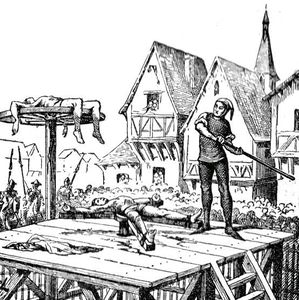Capital punishment
Capital punishment, the death penalty, or execution is the killing of a person by judicial process as a punishment for an offense. Crimes that can result in the death penalty are known as capital crimes or capital offenses. The term capital originates from Latin capitalis, literally "regarding the head" (Latin caput). Hence, a capital crime was originally one punished by the severing of the head.
Capital punishment has in the past been practiced in virtually every society, although currently only 58 nations actively practice it, with 95 countries abolishing it (the remainder having not used it for 10 years or allowing it only in exceptional circumstances such as wartime). It is a matter of active controversy in various countries and states, and positions can vary within a single political ideology or cultural region. In the European Union member states, Article 2 of the Charter of Fundamental Rights of the European Union prohibits the use of capital punishment.
Today, most countries are considered by Amnesty International as abolitionists. Amnesty International allowed a vote on a nonbinding resolution to the UN to promote the abolition of the death penalty. However, over 60% of the world's population live in countries where executions take place, insofar as the four most populous countries in the world (the People's Republic of China, India, United States and Indonesia) apply the death penalty. All of them voted against the Resolution on a Moratorium on the Use of the Death Penalty at the UN General Assembly in 2008.
- Breaking on the wheel
See also Corporal punishment
- More information is available at [ Wikipedia:Capital_punishment ]
Chat rooms • What links here • Copyright info • Contact information • Category:Root


